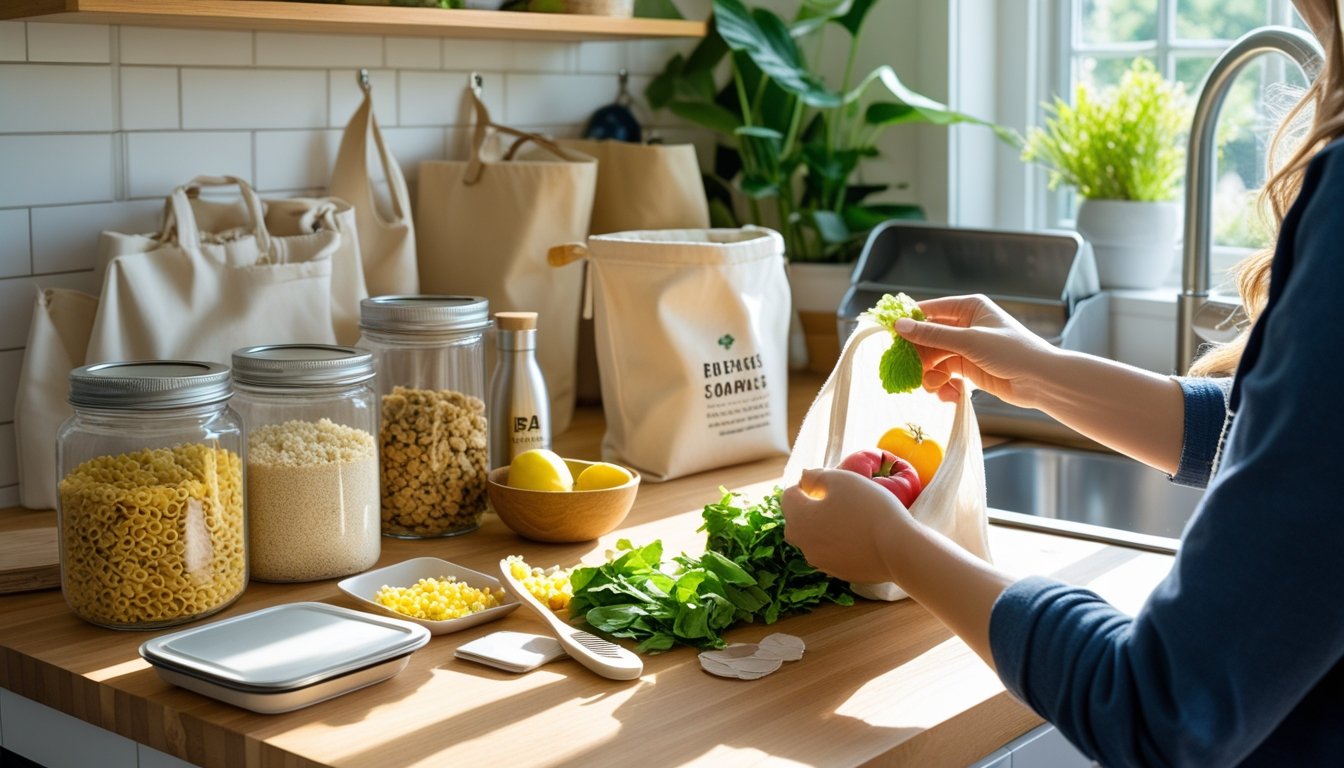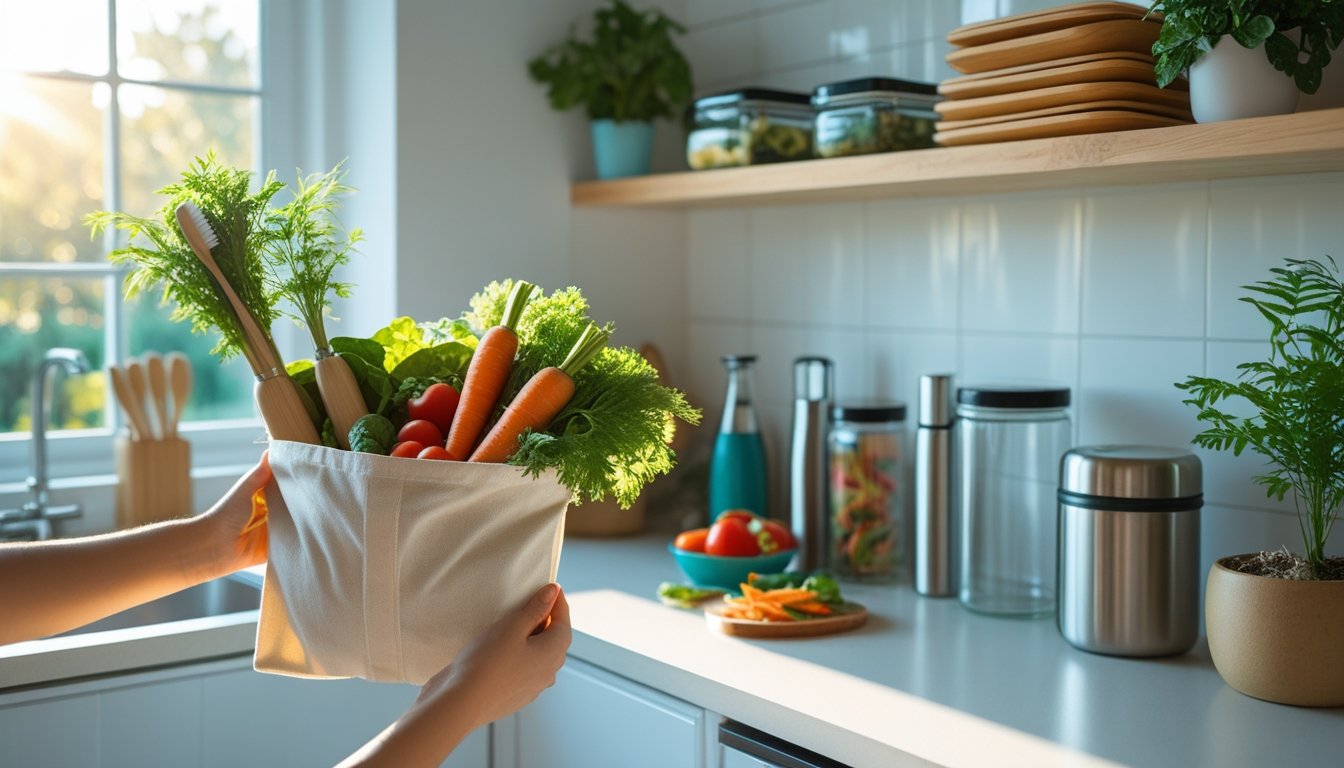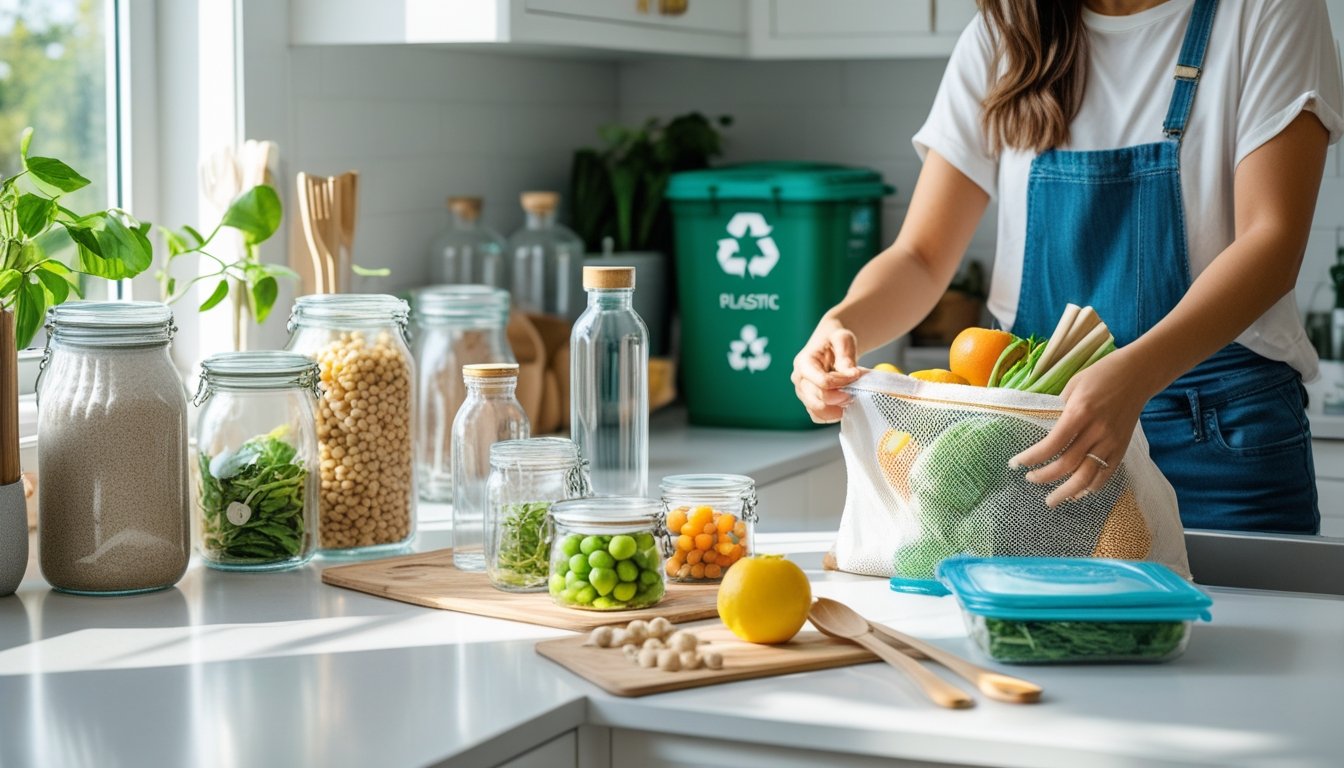Late updated: 23 Oct 2025 12:10
Written by: Sarah Hollister
Tips For Reducing Plastic Waste In Daily Life: Practical Strategies For Sustainability
Reducing plastic waste is not just an environmental trend; it's a necessary step towards preserving our planet for future generations. Every piece of plastic you eliminate from your daily routine contributes to less pollution and a more sustainable world. Swapping single-use items for reusable alternatives dramatically cuts down on plastic waste and supports a healthier ecosystem. These small, everyday changes add up to significant benefits in reducing our environmental footprint.

Incorporating simple habits such as using cloth bags, avoiding products with microbeads, and choosing refillable containers can have a massive impact. These actions not only lessen your plastic footprint but also inspire those around you to adopt more sustainable practices. The more we embrace these green habits, the more we can influence global efforts in plastic waste reduction.
Change can begin at home, and it doesn’t require huge sacrifices. By making conscious choices and encouraging others to do the same, we contribute to a growing movement towards environmental preservation. Every effort counts, and even minor adjustments in our day-to-day activities can lead to substantial improvements in environmental health.
Key Takeaways
- Reusable alternatives help reduce plastic waste dramatically.
- Small habit changes have significant environmental benefits.
- Conscious choices inspire global efforts in sustainability.
Fundamental Strategies To Reduce Plastic Waste
We must focus on core strategies to minimise plastic waste in our day-to-day lives. This involves eliminating single-use plastics, embracing reusable alternatives, and choosing sustainable packaging options.
Eliminate Single-Use Plastics From Daily Routines
Single-use plastics are a major contributor to environmental harm. Simple adjustments, like refusing plastic straws and turning down plastic cutlery in takeaways, can make a big impact.
Plastic bags are another issue. Opt for carrying reusable shopping bags or cloth totes. They are durable and can be used repeatedly, cutting down waste significantly.
Additionally, consider supporting businesses that use eco-friendly materials or those that encourage bringing your own containers. When we collectively reduce dependence on disposable plastics, we contribute positively to decreasing plastic pollution.
Adopt Reusable Alternatives For Everyday Items
Switching to reusable items is essential for reducing our environmental footprint. Reusable shopping bags, bottles, and containers are some of the basic swaps that are not only practical but also long-lasting.
For home use, replace paper towels with washable cloth napkins and plastic wraps with beeswax wraps. In dining settings, using reusable utensils can significantly trim down waste from single-use plastics.
Farmers' markets often provide produce without plastic packaging, making them ideal places for purchasing items. Integrating these alternatives into everyday life helps uphold the reduce and reuse principle.
Opt For Sustainable Packaging And Bulk Purchases
Choosing sustainable packaging is an effective way to reduce our plastic footprint. Opt for products with plastic-free or recycled materials in their packaging.
Buying in bulk is another strategy; it reduces the consumption of plastic packaging and allows us to manage resources better. Zero-waste stores often provide a variety of items that are both eco-friendly and minimal in packaging.
Supporting businesses that prioritise sustainable practices encourages broader industry shifts towards environmentally sound methods. By making these choices, we help promote an economy that values sustainability.
Environmental Impact And Best Practices For Sustainable Living

Addressing plastic waste requires a focus on reducing the environmental impact and promoting sustainable living practices. We must understand the profound effects of plastic pollution, ensure effective recycling, and support systems that encourage a circular economy.
Understand The Effects Of Plastic Pollution And Microplastics
Plastic pollution severely impacts our environment. Large pieces of plastic not only litter our landscapes but also harm marine life. Wildlife often mistake these materials for food, leading to ingestion and sometimes death. Moreover, microplastics are equally concerning. These tiny particles result from the degradation of larger plastics and have infiltrated our oceans, affecting marine organisms' health and potentially entering our food chain.
The production of plastic contributes significantly to climate change. It involves high energy consumption and emits greenhouse gases. As society increasingly relies on plastics, recognising their role in environmental degradation is critical. Our efforts should focus on both reducing plastic use and supporting initiatives that control microplastic contamination.
Incorporate Effective Plastic Recycling Practices
Recycling is key to reducing our plastic footprint. While not all plastics are recyclable, understanding what can be recycled helps optimise the process. Sorting plastics by type ensures better recycling efficiency. Items like PET bottles and HDPE containers are widely recycled, and actively participating in returning these materials helps conserve resources.
Support for recycling initiatives is essential. Community-driven programs increase awareness and participation. Businesses can contribute by using eco-friendly packaging. As consumers, we can opt for products with minimal plastic wrapping or those made of recycled materials. Our choices make a significant impact by endorsing sustainable business practices.
Support A Circular Economy Through Sustainable Choices
A circular economy offers a solution by shifting away from the traditional linear model of 'take, make, dispose'. It involves rethinking how we use resources, with a strong focus on reducing waste and enhancing product lifespan. By choosing durable goods and supporting businesses engaged in sustainable practices, we contribute to resource conservation.
We should aim to integrate sustainable choices into daily habits. Reusable items, such as bags and bottles, reduce single-use plastics. Supporting companies that promote sustainable goods encourages systemic change. By prioritising these principles, we align our lifestyles with eco-conscious goals, impacting everything from plastic production to waste management. Let's commit to choices that foster a balanced, thriving environment.
Frequently Asked Questions

To effectively reduce plastic waste, we can focus on sustainable alternatives and community involvement. Specific strategies include replacing disposables with eco-friendly materials and adopting home practices that minimise plastic use.
What are the most effective ways to minimise single-use plastic consumption?
One effective method is carrying reusable bags for shopping. Opting for stainless steel or glass bottles over plastic ones is also crucial. We can further reduce single-use plastic by being mindful of packaging when purchasing products.
How can I replace disposable plastic items with sustainable alternatives?
Swapping plastic straws for metal or bamboo ones is a great start. We can use cloth towels instead of paper ones. Selecting products in glass or cardboard packaging helps reduce reliance on plastic.
What strategies can be implemented at home to cut down on plastic waste?
Utilising bulk bins at stores reduces packaging waste. We can store food in glass containers, avoiding plastics. Composting organic waste also lessens dependence on plastic bin liners. Making our own cleaning supplies also keeps plastic bottle usage low.
Can you suggest eco-friendly materials that can be used in place of plastics?
Bamboo, a rapidly renewable resource, serves as an excellent substitute for many single-use items. Stainless steel offers a durable alternative for cutlery and containers. Glass provides a recyclable option for bottles and jars.
What role do recycling and upcycling play in combating plastic pollution?
Recycling transforms plastic waste into new products, reducing the need for new plastic. Upcycling involves creatively repurposing items, which helps to decrease landfill waste and conserves resources. By engaging in these practices, we contribute to a circular economy.
How can I involve my community in efforts to reduce plastic waste?
Organising local clean-ups raises awareness and visibly reduces plastic waste. Hosting workshops about plastic alternatives educates and motivates others. Collaborating with businesses to implement waste reduction programmes can create lasting community-wide change.
